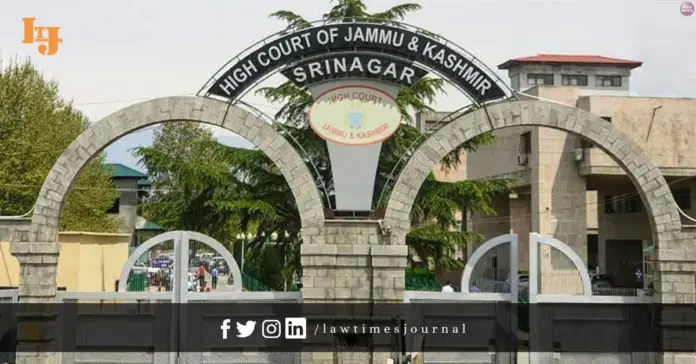
Case title: Aman Sagotra v. UT of J&K
Citation: Bail App No. 211/2020 CrlM No. 1277 & 1699 of 2020
Coram: Justice Sanjay Dhar
The Bench of Justice Sanjay Dhar observed that cases relating to the grant of bail in the offence of rape must be approached differently, since the release of the accused on bail in such cases would be contrary to the interests of society by adopting a liberal approach.
Acknowledging that even if the prosecutrix has been quite friendly with the petitioner for a long time, the same does not grant the petitioner/accused a licence to have sexual relations with her without her consent, the J&K HC recently denied the benefit of regular bail under Section 376 IPC to the petitioner for offence.
FACTS
The prosecutrix lodged a complaint with Judicial Magistrate Hiranagar alleging that she became acquainted with the petitioner/accused when she was studying in 10th class, whereupon he formed illicit relationships with her against her will and also vowed that he would marry her at an appropriate time.
The complaint further asserted that the petitioner/accused had sexual relations with the complainant and that if she revealed anything to anyone about this relationship, he would threaten her with serious consequences.
The complaint was forwarded to in charge Police Station, Hiranagar, accordingly, F.I.R for offence under Section 376 IPC registered.
After investigation of the case, the police found that the offence under Sections 376 IPC was made out against the accused and, accordingly, the challan was produced before the competent Court. The petitioner approached the trial Court for a grant of bail but the same was dismissed.
ARGUMENTS
The petitioner requested bail on the grounds that the prosecutrix wilfully and knowingly entered into a relationship with the petitioner/accused out of her free consent, as such, it could not be claimed that due to any misunderstanding, the sexual relationship between the petitioner and the prosecutrix had taken place.
In the reply, the State contended that during the investigation of the case, it was found that there was a deep-rooted friendship between the petitioner and the prosecutrix, which lasted for about two years, and that the petitioner had promised to marry her.
It was further asserted that on 22nd October 2019, the petitioner had picked up the prosecutrix in his car and committed rape upon her.
Therefore, offence under Section 376 IPC stood established against the petitioner/accused and he was arrested on 15th January 2020. It was contended that the allegations against the petitioner are serious in nature and as such, he was not entitled to bail.
ORDER OF THE COURT
Considering the allegations, Challan, and facts of the case, the Court came to the conclusion that prima-facie, the case of the prosecutrix against the petitioner is genuine as the prosecutrix had not only in her complaint but also in her statement recorded under Section 164-A Cr.P.C. repeatedly stated that the petitioner had sexual intercourse with her against her consent.
Relevantly, in response to the petitioner’s claim that the prosecutrix had formed sexual ties with him since the time she was studying in 10th class because of her love and passion for the petitioner, the Court said,
“The prosecutrix had barely attained the age of majority a few months prior to the lodging of the F.I.R…the past sexual relationship of the prosecutrix with the petitioner, if any, would constitute offence of rape, irrespective of the consent, the prosecutrix being minor at the relevant time. Thus, the fact that the prosecutrix was not matured enough would certainly have an adverse impact on the case of the petitioner pertaining to grant of bail.” Taking into consideration the apprehension that in case the petitioner is enlarged on bail, he may threaten the prosecutrix, the Court denied granting him Bail at the instant stage, “when the statement of the prosecutrix is yet to be recorded, may thwart the course of justice.”








